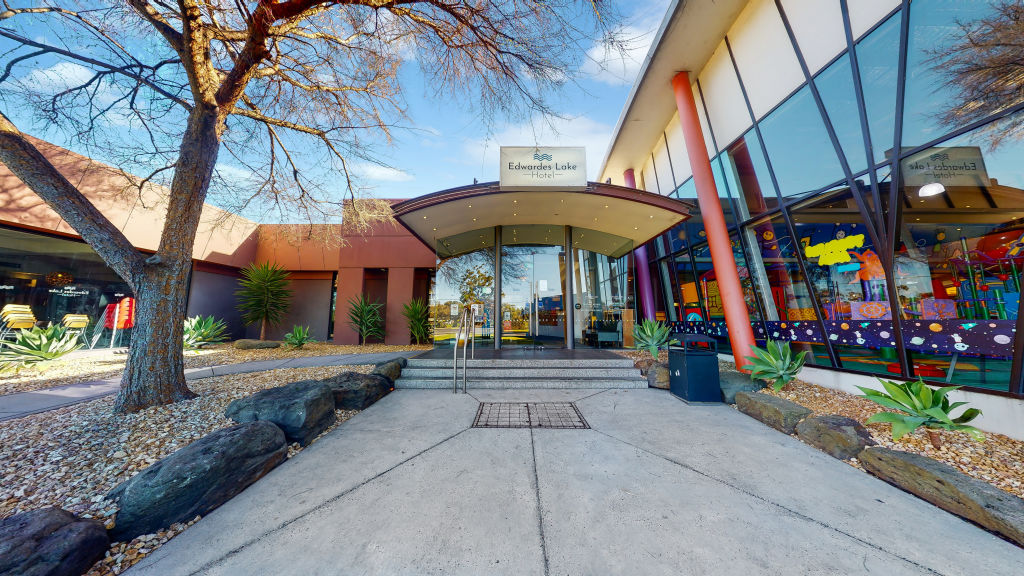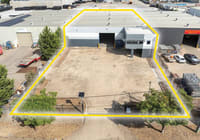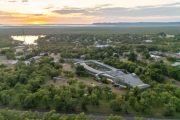
Melbourne hotel deals point to strong resurgence
Hospitality and hotel assets have emerged as hot property in Melbourne despite challenging trading conditions amid COVID lockdowns, with the hotel industry experiencing its strongest period of transactional activity in two decades, agents say.
For example, the freehold interest of the Edwardes Lake Hotel in Reservoir sold for $28 million earlier this month, within a day of its expression-of-interest campaign ending.
JLL pub investment sales national director John Musca said the sale confirmed that the national appetite for large-scale investment hotels remained insatiable.
Snapped up by Hotel Property Investments, the Edwardes Lake Hotel was offered with a sought-after, investment-grade, 60-year, triple net lease, with the venue operating 100 gaming machines and a commencing net annual income of $1.4 million.
Mr Musca said the sale highlighted the astute market recognition of investment hotels as an asset class that delivered an internal rate of return (IRR) exceeding any other form of retail property due to the millions of dollars of underlying perpetual goodwill value that existed in each tenancy.
Other significant deals include the sale of five of the Zagame family’s gaming hotel leaseholds to the Francis family for $99 million. Leased pubs have also been popular among investors, as evidenced by the sale of The Boundary Hotel in East Bentleigh and the Tudor Inn Hotel in Cheltenham, which were both sold by Hotel Fund ALE.
National interest is expected in the freehold sale of the Boronia Hotel, located in Melbourne’s eastern suburbs.
Sold via an expressions-of-interest campaign, the recently refurbished hotel set on a 7079-square-metre corner site is being sold with a long-term, triple net lease.
It has a net annual income of $1.2 million and a 20-year initial term expiring in 2041, followed by two further 20-year options.
JLL hotels vice president Will Connolly said that, during the past 10 years, investment hotels had cemented their place as the national retail asset class of choice.
“This is further evidenced with ASX-listed entities recently securing assets within the sector aggressively, despite varying degrees of COVID-enforced lockdowns,” he said.
“Their unique underlying value of the tenancy business, which attaches to gaming approvals and licences, delivers a huge reversionary uplift that is simply unachievable in any other form of real estate investment.”
CBRE hotels senior director Scott Callow said a series of transactions in the pub market had set new yield records.
“High-quality assets will always attract strong interest and we have seen some prime assets being put to the market in the current environment,” he said.
“We expect that the accommodation market will also deliver some substantial transactional results over the coming months. The cost of developing new hotels continues to rise and, while record sale prices are being set, they remain below replacement costs.”
Accommodation hotels were also highly sought after, he added, as buyers viewed it as an opportune time to raise capital to acquire assets in a challenging market.
“We haven’t seen any significant levels of distress from owners and many have been long-term holders of these assets,” he said.
Savills hotels metropolitan and regional sales state director Nick Lower said there had been a strong appetite for accommodation assets, and when normality resumed post lockdowns, the sector would make a strong resurgence.
“Like anything, most investors take a long-term view on assets and if you are putting money into it, you are not looking to recycle it in six months,” he said. “Melbourne is a fantastic city [and] I think most people’s view is that there has been a little bit of stalling in the market, and when you look at those groups that are actively purchasing at the moment, the pool of supply has diminished dramatically.
“Saying that, though, there may be only a handful of buyers and there is not much for them to choose from. So when it comes to transactions occurring, the basic economics of supply and demand … there’s just not much supply.”
Looking ahead to 2022, Mr Callow said he expected pub and accommodation markets would bounce back strongly.
“Regional hotel assets have benefited greatly from domestic demand, particularly over weekends and holiday periods,” he said.
“When border restrictions are relaxed, the Australian domestic market will look to make up for lost time and missed travel opportunities. Whether it is for work, leisure or visiting family and friends, we expect the market to experience buoyant times.
“Even with international borders opening up, many people may be hesitant to go overseas while Australia will be seen as a safe and secure travel location.”










